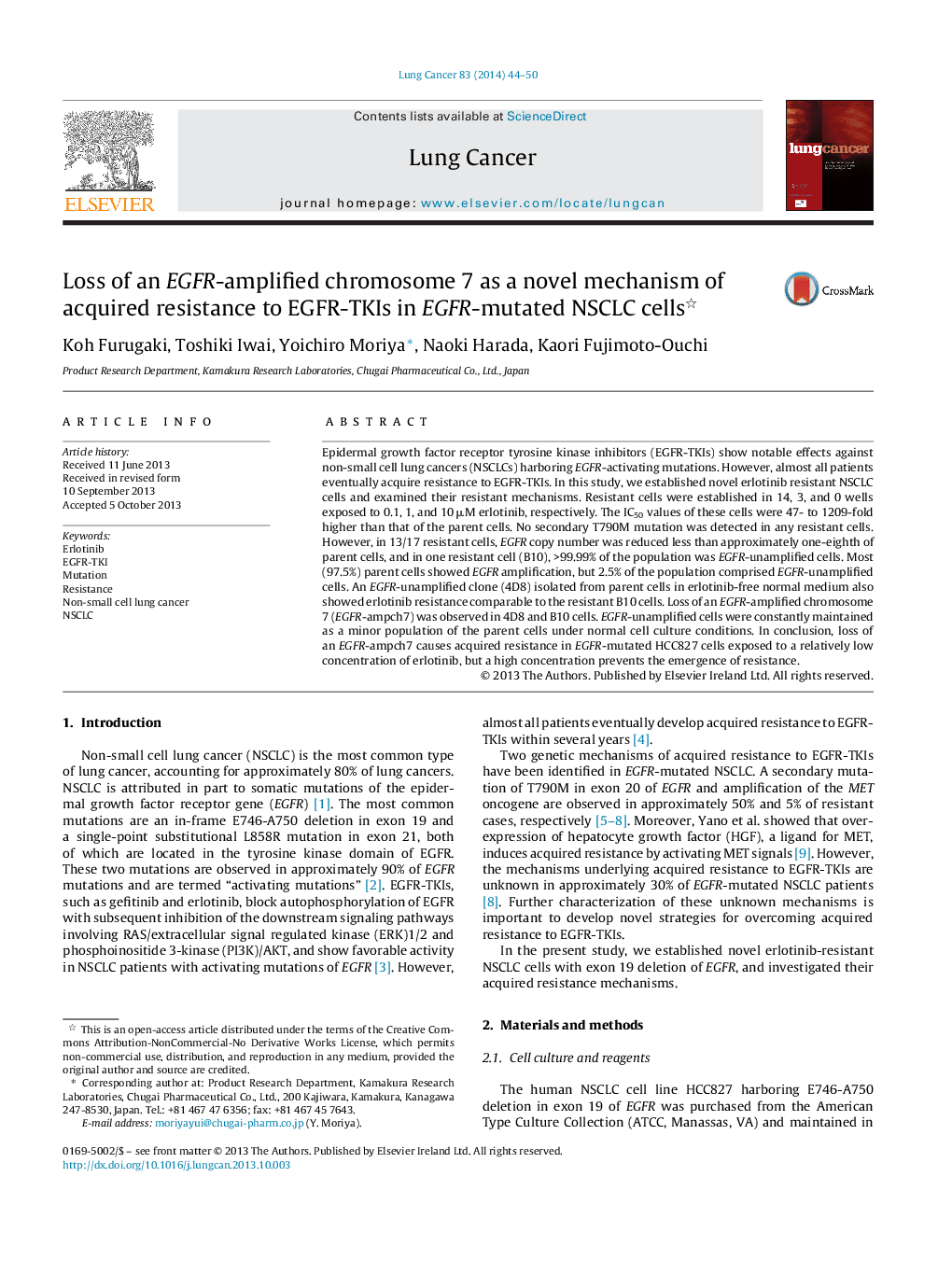| Article ID | Journal | Published Year | Pages | File Type |
|---|---|---|---|---|
| 10911203 | Lung Cancer | 2014 | 7 Pages |
Abstract
Epidermal growth factor receptor tyrosine kinase inhibitors (EGFR-TKIs) show notable effects against non-small cell lung cancers (NSCLCs) harboring EGFR-activating mutations. However, almost all patients eventually acquire resistance to EGFR-TKIs. In this study, we established novel erlotinib resistant NSCLC cells and examined their resistant mechanisms. Resistant cells were established in 14, 3, and 0 wells exposed to 0.1, 1, and 10 μM erlotinib, respectively. The IC50 values of these cells were 47- to 1209-fold higher than that of the parent cells. No secondary T790M mutation was detected in any resistant cells. However, in 13/17 resistant cells, EGFR copy number was reduced less than approximately one-eighth of parent cells, and in one resistant cell (B10), >99.99% of the population was EGFR-unamplified cells. Most (97.5%) parent cells showed EGFR amplification, but 2.5% of the population comprised EGFR-unamplified cells. An EGFR-unamplified clone (4D8) isolated from parent cells in erlotinib-free normal medium also showed erlotinib resistance comparable to the resistant B10 cells. Loss of an EGFR-amplified chromosome 7 (EGFR-ampch7) was observed in 4D8 and B10 cells. EGFR-unamplified cells were constantly maintained as a minor population of the parent cells under normal cell culture conditions. In conclusion, loss of an EGFR-ampch7 causes acquired resistance in EGFR-mutated HCC827 cells exposed to a relatively low concentration of erlotinib, but a high concentration prevents the emergence of resistance.
Related Topics
Life Sciences
Biochemistry, Genetics and Molecular Biology
Cancer Research
Authors
Koh Furugaki, Toshiki Iwai, Yoichiro Moriya, Naoki Harada, Kaori Fujimoto-Ouchi,
